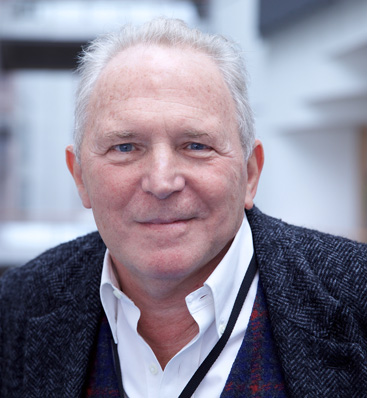The EED Board of Governors has 42 members: representatives of the 27 EU member states, the UK, Norway, the European External Action Service, a representative designated by the European Commission, up to nine Members of the European Parliament, and three members elected to represent European civil society. The Board meets every six months and is responsible for the mandate, mission, and overall guidance of EED’s operations and development. It receives regular reports from the Executive Committee and the Executive Director.

Civil society expert

Designated by the European Commission

Representatives from the 27 EU member states, the UK and Norway.
The EED Executive Committee consists of seven members who represent a variety of expertise, including those with strong experience in civil society and foundation work, as well as EU member state representatives that meet on average every two months to take funding decisions.

Civil society expert

Civil society expert

Czech Republic

Member of the European Parliament
The Brussels-based EED Secretariat is responsible for EED’s day-to-day grant making work. Jerzy Pomianowski is EED Executive Director.
Lisbeth Pilegaard is a member of the Board of Governors and is the chair of the Executive Committee of the European Endowment for Democracy (EED) since its establishment in 2013. She has undertaken several missions with EED to Ukraine, Lebanon, Jordan, Palestine, Turkey/Syria, and Moldova to engage with former and current democracy activists.
From 2019 to 2023 Lisbeth Pilegaard has been the Executive Director of the Danish Institute for Parties and Democracy (DIPD), which works with Danish political parties to support the development of well-functioning democratic political parties, multi-party systems and other institutions globally. Pilegaard was previously the Executive Director of the Danish Fund Outside, working for the rights of socially marginalized groups. Pilegaard founded and ran a Foreign Policy Consultancy from 2012 to 2017 serving and advising the Danish Ministry of Foreign Affairs, Civil Society, think tanks and the UN.
Pilegaard has been seconded by the Danish Ministry of Foreign Affairs as an Expert Adviser to support the UN High Level Panel for Humanitarian Financing set up by the former Secretary-General of the United Nations to address global humanitarian crises by developing the ‘Grand Bargain’ launched at the Global Humanitarian Summit in Istanbul.
Pilegaard previously headed the Department for Middle East & North Africa at KVINFO – a leading Danish institution on Gender, Equality and Diversity – leading the development of strategic partnerships between Denmark and the MENA region, working with over 90 partners within the public, private and civil society sector, and the academic world to help increase women’s economic, social, and political participation in the region. Pilegaard also headed the Norwegian Refugee Council’s Global Technical Support Unit and established and led NRC in Afghanistan, Pakistan, and Iran as Regional Representative for three years.
She has as an NGO representative and consultant worked in more than 40 conflict ridden countries across all continents with long term missions to Iraq, Zimbabwe, Uganda, Bosnia & Hercegovina, Serbia, Croatia, Iran, Pakistan, and Afghanistan.
Pilegaard has served in various NGO/UN/EU committees and working groups on development and humanitarian aid coordination, coherence, and transparency. She has been a civil society member of the Danish Delegation to the UN Commission of the Status of Women (CSW) and sat in the Council of the NGO Action Aid – Denmark. She has also been a board member of Transparency International – DK Chapter and was appointed Adviser to UN Compact Cities Programme in Australia. Pilegaard is a Steering Member of the Nordic Women Mediators Network working for the inclusion of women into peace processes globally and a is Leadership Fellow at the St. George’s House, Windsor Castle, UK. She has held board positions in the LIVIA Foundation, the Anna Lindh Foundation and has been the chairperson of the Danish Council for International Conflict Resolution (RIKO). Pilegaard has been a guest lecturer at different institutions as the University of Aalborg and the NATO School in Oberammergau. Pilegaard has a MA in Rhetoric with a focus on peace negotiations from the University of Copenhagen.
Maria Ligor started the activity of Ambassador Extraordinary and Plenipotentiary of Romania in Finland on January 16, 2021.
A career diplomat since 1996, she was a member of the Government in 2016, holding the portfolio of Minister Delegate for Relations with Romanians Abroad. At the end of her term, she resumed her diplomatic activity as Special Representative for International Cooperation, Democracy and Human Rights.
Since November 2012, she has been a member of the Board of Governors of the European Endowment for Democracy (EED), an elected member of the Executive Committee and moderator of the EED Strategic Reflection Meetings.
Between 2013 and 2016, she was Ambassador to Canada, contributing decisively to the elimination of visas for Romanian citizens. She was also accredited as a Permanent Representative to the International Civil Aviation Organization.
Ms Ligor was Ambassador to the Kingdom of Spain, between 2006 and 2011, where among other things she succeeded to enlarge the consular network and laid the foundations for the program of teaching the Romanian language, culture and civilization in Spanish schools. During the same period, Maria Ligor held the position of Permanent Representative to the World Tourism Organization, Romania becoming in 2010, vice-president of the Executive Council.
Previously, she served as an ad interim Secretary General of the MFA, in April-May 2012 and as Director General for European Affairs (EU and bilateral relations) between 2003 and 2006, during the negotiations for Romania's accession to the Union.
As a diplomat, she worked in Brussels at the Romanian Mission to the European Union (1998-2002), at the Embassy in Luxembourg (1997) and at the MFA Headquarters, at the Political Planning Directorate, at the European Union Directorate and at Western Europe Directorate. In 1997, she received a Robert Schuman Fellowship from the European Parliament, and in 1996, completed a stage at the Council of Europe in Strasbourg.
Maria Ligor obtained in 1995 the Master of Art degree from the College of Europe in Bruges, and in 2000, Diploma of Advanced Studies in Political Sciences from the Université Libre de Bruxelles. Her training also includes studies at the European Institute of the University of Geneva, as well as the Managing and Shaping Change in the Information Society program, Harvard University, JFK School of Government, Kokkalis Project, Athens. In Romania, she graduated from the postgraduate program in International Relations at SNSPA in 1993, and the Polytechnic University in 1990.
In 2004, she received the National Order of Merit, in the rank of Knight, and in 2007, the Order for Diplomatic Merit in the rank of Officer. In 2010, she received the Cross of the Royal House of Romania from King Michael, as well as the Order of the Holy Emperors Constantine and Helen conferred by Patriarch Daniel. In 2012, she received the Grand Cross of the Order of Isabel la Catolica of Spain.
She is fluent in English, French and Spanish and has a passive knowledge of Italian and Russian.
Jerzy Pomianowski, EED founding Executive Director, took the leadership of the organisation in 2013 after two years as Deputy Foreign Minister of Poland. As the director of OECD-UNDP’s Partnership for Democratic Governance (2008-2011), Pomianowski supported countries destabilised by armed conflict or natural disasters. This followed his launch of Poland Aid (2006-08) and work as Director General of the Polish Foreign Service (2005-06). Pomianowski began his career as a civil servant in 1990, just after the fall of communism, first in the Ministry of Education, and then in the Ministry of Foreign Affairs. He then headed Poland’s relations with Asia, the Middle East, and Africa, and was Ambassador to Japan from 1997-2002. From 1980-89, Pomianowski was an active member of the democratic opposition in Poland.